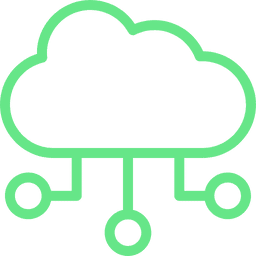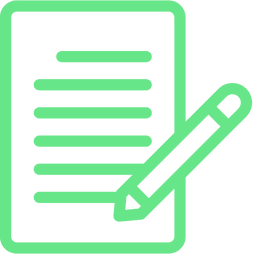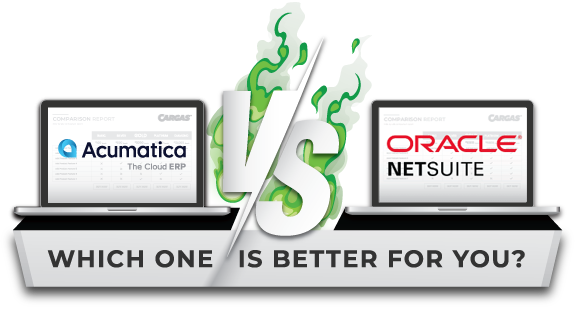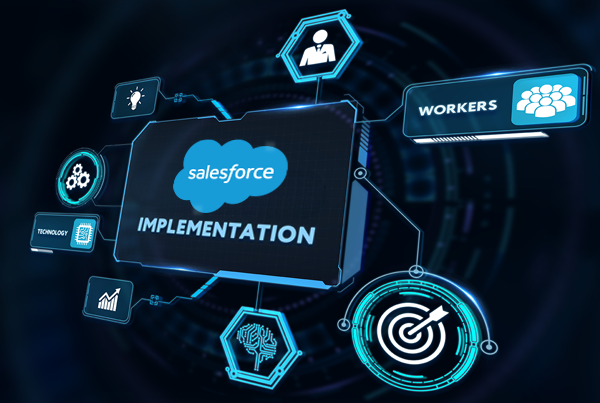Salesforce Sales Cloud vs. Sugar Sell
Large-Scale Flexibility vs. Small-Business Support
Salesforce Sales Cloud and Sugar Sell are leading CRM solutions with overlapping features and functions. While these solutions may share capabilities, they have slightly different focus areas, and their developers take different approaches to software design. This means one solution may be a better fit for your business than the other.
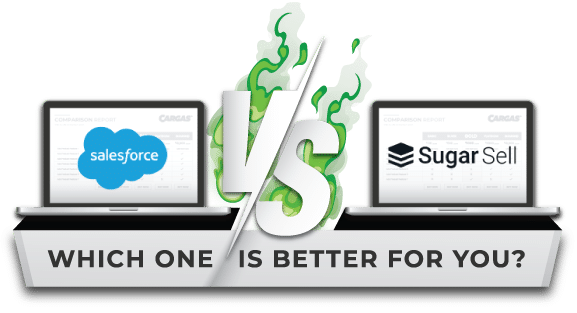
Take advantage of our side-by-side comparison report by entering your information: ►
Small Companies vs. Midsize and Enterprise
If you’re a large or midsize organization with a complex sales process, Salesforce products like Sales Cloud provide plenty of flexibility and scalability. On the other hand, if your CRM needs are more straightforward, solutions like Sugar Sell will get the job done.
With a slew of features, Salesforce Sales Cloud satisfies various needs for different industries. If its out-of-the-box capabilities don’t fit your company’s exact requirements, Salesforce Sales Cloud is highly customizable. And, in the rare case that the solution lacks a specific feature you need, your implementation partner can help you find an add-on through Salesforce AppExchange. Salesforce Sales Cloud has an open API that integrates seamlessly with countless third-party solutions.
Sometimes, extensive features and flexibility can be overwhelming for a small business. Companies that prefer streamlined software will enjoy a simple yet powerful solution like Sugar Sell. This software can be used out of the box and comes with features general enough for most organizations. Sugar Sell doesn’t offer the level of customization that Salesforce Sales Cloud provides. Still, its ease of use, particularly straight out of the box, makes it a reliable option for companies that don’t want or need fancy features.
Pricing and Requirements
Your company’s budget plays a huge role in determining which software is the best fit. While Sugar Sell does have hidden fees, its cost and features make it an overall better solution for smaller companies with tighter budgets. On the other hand, Salesforce Sales Cloud lets larger organizations pick and choose the features and support plans they want.
Salesforce Sales Cloud does not require a minimum number of users to purchase. No hidden costs are associated with this solution, either—every package is clearly labeled and priced. Based on the number of users you want, the functionality you need, and the support you require, you can check Salesforce’s payment plans and easily calculate how much your solution will cost.
While Sugar Sell is priced for smaller organizations, hidden fees and requirements will increase costs. Most notably, Sugar Sell requires a minimum of 10 users to purchase. This number may seem high, particularly for smaller companies, but keep in mind that this cost covers several additional features. Sugar Sell comes with two sandboxes, 60 GB of storage, access to Sugar phone support, and four support contacts. Built-in support is a huge plus for Sugar Sell because other solutions like Salesforce require a separate support plan purchase.
Vast Integrations vs. Simple Environment
How will your new CRM solution fit into your current software environment? Larger organizations often need multiple solutions to handle the needs of different departments, while smaller businesses only need a few specific solutions to get by.
Salesforce Sales Cloud is an excellent option for larger organizations with vast software environments. This solution has an open API, so it synchronizes with countless products from various developers. As such, Salesforce Sales Cloud easily connects with many other solutions to keep every team informed and remove data silos between departments.
Smaller organizations might prefer Sugar Sell because, while it doesn’t include an open API, integration capabilities aren’t necessary. Companies that do want to add marketing or customer service capabilities to the software can invest in a bundled solution from Sugar because Sugar Sell, Sugar Market, and Sugar Service are built to work together. An open API isn’t necessary for organizations that only need a handful of solutions in the first place, which makes Sugar Sell a good fit for those companies.
Sum It Up
Salesforce Sales Cloud is a robust CRM with features that appeal to different industries. With an open API and flexible cost structure, Salesforce Sales Cloud suits different software environments and budgets. Companies can break down silos and perform ultra-specific functions by customizing this solution.
Sugar Sell is small-business software with general sales functionality. Despite its hidden fees, Sugar Sell is priced reasonably for organizations with tight budgets, offering built-in support and multiple user licenses. While Sugar Sell lacks an open API, integration isn’t impossible, and the other SugarCRM products fill many functions that Sugar Sell doesn’t cover.
At Cargas, our expert consulting team specializes in CRM solutions, including Salesforce Sales Cloud. If you’re trying to understand whether Salesforce is a good fit for your business, we’d love to help. Let’s connect to talk about your needs and what you’re looking for in a software solution.

Let’s Chat
Still have questions? Get in touch with our expert team of software professionals.
